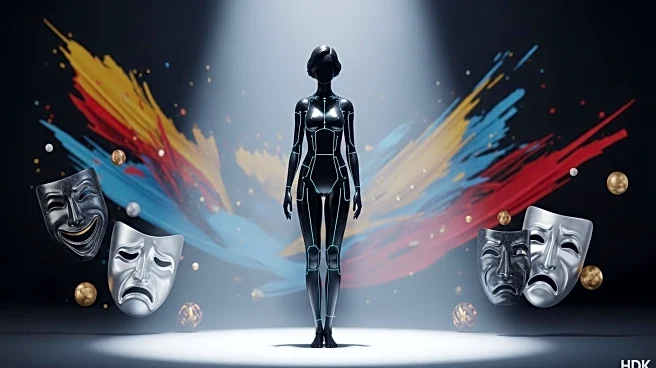What's Happening?
The Screen Actors Guild-American Federation of Television and Radio Artists (SAG-AFTRA) has issued a statement condemning the use of AI-generated actress Tilly Norwood, created by Eline Van der Velden of Particle 6 Productions. The union argues that synthetic performers like Norwood threaten the livelihoods of human actors and devalue human artistry. Hollywood figures, including Melissa Barrera and Mara Wilson, have expressed outrage, labeling the creation as identity theft and a threat to the industry. SAG-AFTRA emphasizes that producers must comply with contractual obligations when using synthetic performers, which include notice and bargaining requirements.
Why It's Important?
The emergence of AI-generated performers like Tilly Norwood raises significant concerns about the future of human creativity and employment in the entertainment industry. SAG-AFTRA's stance highlights the potential impact on actors' job security and the value of human performance. The backlash from Hollywood underscores the tension between technological innovation and the preservation of traditional artistic roles. This development could lead to broader discussions on ethical standards and regulations governing AI use in creative fields, affecting how content is produced and consumed.
What's Next?
SAG-AFTRA's statement may prompt further scrutiny and potential regulatory measures regarding the use of AI in entertainment. Producers and talent agencies might face increased pressure to ensure compliance with union rules, potentially influencing casting decisions and production practices. The controversy could also spark industry-wide debates on the ethical implications of AI in creative roles, leading to new guidelines or policies to protect human performers.
Beyond the Headlines
The controversy surrounding Tilly Norwood reflects broader societal concerns about AI's role in creative industries. It raises questions about the balance between innovation and the preservation of human-centric artistry. The debate may influence public perception of AI and its integration into everyday life, potentially affecting consumer preferences and industry standards.










